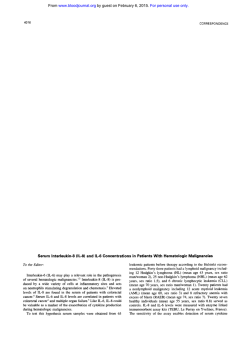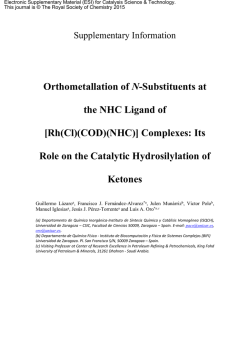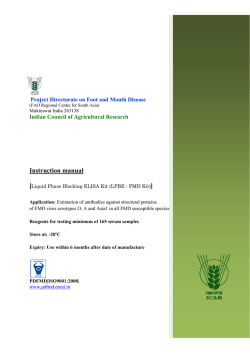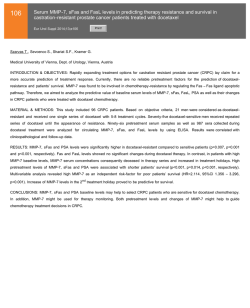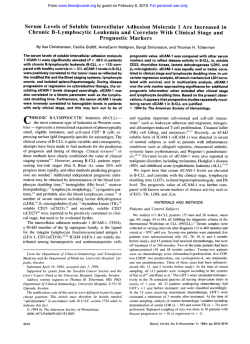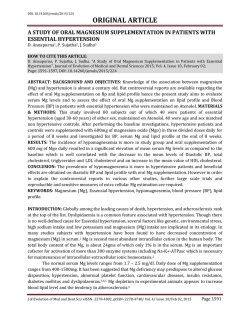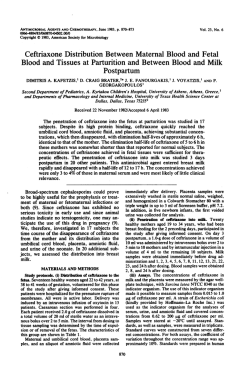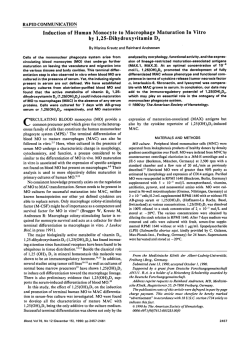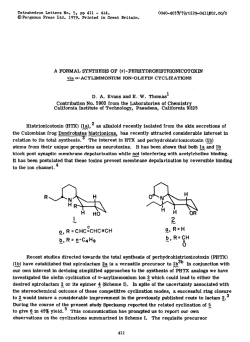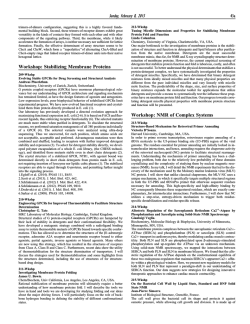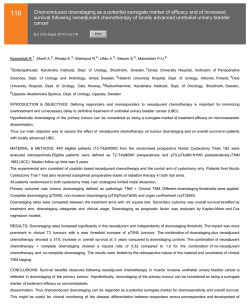
1-s2.0-S1569905614606175-main
627 Metabolic profiling of serum: Potential in the diagnosis of upper tract urothelial carcinomas Eur Urol Suppl 2014;13;e627 Print! Print! Lv Q., Yin C., Li P., Tao J. The First Affiliated Hospital With Nanjing Medical University, Dept. of Urology, Nanjing, China INTRODUCTION & OBJECTIVES: To assess altered metabolic pathways associated with the pathogenic process of upper tract urothelial carcinomas (UTUCs), and to exploit potential biomarkers for the diagnosis and surveillance of UTUCs patients on the basis of serum samples. MATERIAL & METHODS: Serum specimens collected from 30 healthy individuals and 36 patients with upper tract urothelial carcinoma were used to performed 1 H nuclear magnetic resonance (NMR)-based metabolomics analysis . Principal component analysis (PCA) and supervised orthogonal projections latent structures-discriminant analysis (OPLS-DA) was used to analyzed the data. RESULTS: Compared with those from healthy subjects, serum samples from patients with UTUCs showed increased levels of valine, lactate, arginine, polyunsaturated fatty acids (PUFA), creatine / phosphocreatine, proline, glucose. Meanwhile, The levels of low density lipoprotein (LDL)/ very-low density lipoprotein (VLDL), alanine, N-acetyl-glycoproteins, glutamine, glutamate, taurine in serum samples of UTUCs patients were lower than healthy controls. OPLS-DA analysis shows that UTUCs patients are well separated from healthy controls. Fig.1 Typical 1 H NMR spectra of serum from healthy control. Fig.2 Loading Plot revealed the spectral regions responsible for the discrimination of the OPLS-DA model. CONCLUSIONS: Our results offer valuable information for possibility of noninvasive diagnosing UTUCs. 1 H nuclear magnetic resonance (NMR)-based metabolomics analysis of serum has the potential to become a noninvasive early detection test for upper tract urothelial carcinoma.
© Copyright 2026
